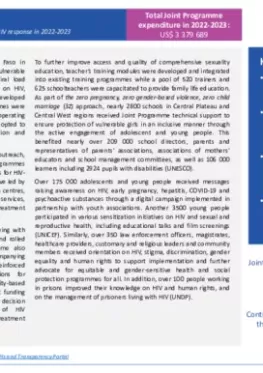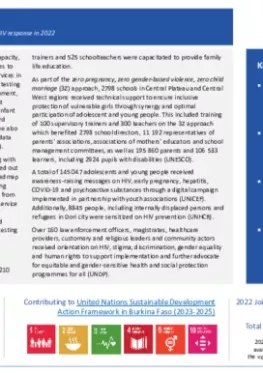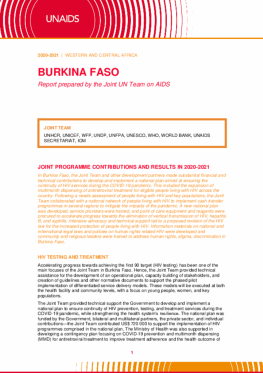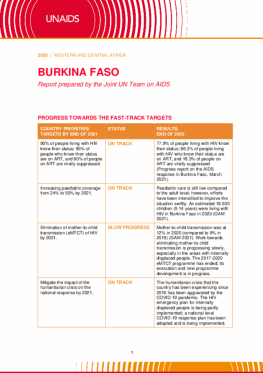|
Burkina Faso
In 2022-2023, the Joint Programme supported Burkina Faso in building capacity, developing guidance and empowering vulnerable communities to improve HIV prevention, testing and viral load monitoring services in the country. A national strategy on HIV, hepatitis and sexually transmitted infections (STIs) was developed with the Joint Programme’s support, and HIV testing guidelines were revised to better steer HIV testing programmes. Standard operating procedures on pre-exposure prophylaxis (PrEP) were also adopted to support PrEP programme implementation, data collection and monitoring in line with global standards (WHO).
Procurement of point-of-care equipment, community outreach, service promotion campaigns and client follow-up programmes increased access and uptake of early infant diagnosis services for HIV-exposed children. For instance, a family index testing initiative led by peer educators reached 372 children admitted to nutrition centres, 386 women and over 380 male partners with HIV testing services, and the 68 people found positive were referred to treatment (UNICEF).
Burkina Faso successfully transitioned all eligible people living with HIV to Dolutegravir-based antiretroviral treatment (ART) and rolled out multimonth dispensing of ART. The Joint Programme also supported the development of a national strategy and accompanying guidelines on differentiated service delivery, and further reinforced their implementation through capacity building sessions for healthcare providers (WHO). The establishment of community-based HIV service delivery systems, capacity building and catalytic funding also empowered communities to actively participate in decision making, planning, implementation and monitoring of HIV programmes, including differentiated HIV testing and treatment services (UNICEF, WHO, UNAIDS Secretariat).





